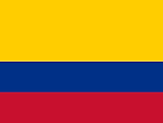Ecobricks
FAQs
What is the impact of single use plastics on the environment?
How do Ecobricks help reduce plastic waste?
By turning non-recyclable plastics into building blocks, ecobricks provide a practical use for waste that would otherwise pollute landfills or oceans, contributing to eco-friendly construction and waste management.
What has been done about SUPs around the world?
SINGAPORE

-
Bans on plastic bags, focusing more to reduce plastic waste
-
Plastic waste accounts for about 30% of domestic waste in the country
SERBIA

-
Serbia is making efforts to align with EU plastic directives
-
SUPs are widely used, but bans and regulations are in discussion stages.
VIETNAM

-
Announced plans to ban single-use plastics in major cities by 2025.
-
Generates 1.8 million tons of plastic waste per year.
TURKEY

-
Implemented plastic bag fees in 2019.
-
Reducing plastic bag consumption by 80%; working on broader SUP restrictions.
URUGUAY
.png)
-
Banned plastic bags in 2019.
-
Committed reducing SUP waste significantly in line with environmental sustainability goals.
NORTHERN IRELAND

-
Northern Ireland is subject to UK regulations on reducing SUPs.
-
The ban on plastic straws, stirrers, and cotton buds came into effect in 2020.
JAPAN
.png)
-
Significant plastic waste producer.
-
Launched a law in 2022 to promote reusable plastic and reduce SUP usage, also promotes recycling.
ISRAEL
.jpeg)
-
Israel is reducing SUPs, especially in national parks.
-
Charges on plastic utensils and cups introduced in 2021.
KENYA
.png)
-
Banned plastic bags in 2017, with strict enforcement.
-
SUPs like plastic bottles and straws are under consideration for future bans.
INDONESIA

-
A large contributor to ocean plastic pollution.
-
Committed to reducing plastic waste by 70% by 2025 through national action plans and plastic bans.
GHANA
.png)
-
Faces challenges with plastic waste management.
-
SUPs are widely used, but initiatives are in progress to reduce usage through recycling.
MALAYSIA
.png)
-
Plans to ban SUPs by 2030 as part of a "roadmap" to address plastic pollution.
-
Plastic waste makes up a significant portion of landfill waste.
INDIA
.png)
-
Banned many SUPs starting in 2022, including straws, plastic cutlery, and polystyrene.
-
Generates around 9.5 million tons of plastic waste annually.
ZAMBIA
.png)
-
Banned many SUPs starting in 2022, including straws, plastic cutlery, and polystyrene.
-
Generates around 9.5 million tons of plastic waste annually.
SUDAN
.png)
-
Limited regulations on SUPs.
-
Plastic waste is an issue but not a priority for current environmental policies.
SPAIN

-
Spain's law prohibits SUP products like plates and straws, part of an EU-wide strategy to curb plastic pollution by 2021.
COLOMBIA
.png)
-
Banned SUPs in national parks and coastal areas in 2020.
-
Promotes alternatives to SUPs through sustainable development policies.
UAE

-
Dubai and Abu Dhabi are leading the charge in SUP reduction.
-
Banned plastic bags in 2022 and are aiming for a broader SUP phase-out by 2024.
Saudi Arabia

-
Saudi Arabia's Vision 2030 aims to improve waste management, with a focus on enhancing recycling efforts and reducing landfill waste.
-
Saudi Arabia’s Standards Organization (SASO) set regulations in 2021 to reduce SUPs in packaging, including guidelines for biodegradable alternatives

